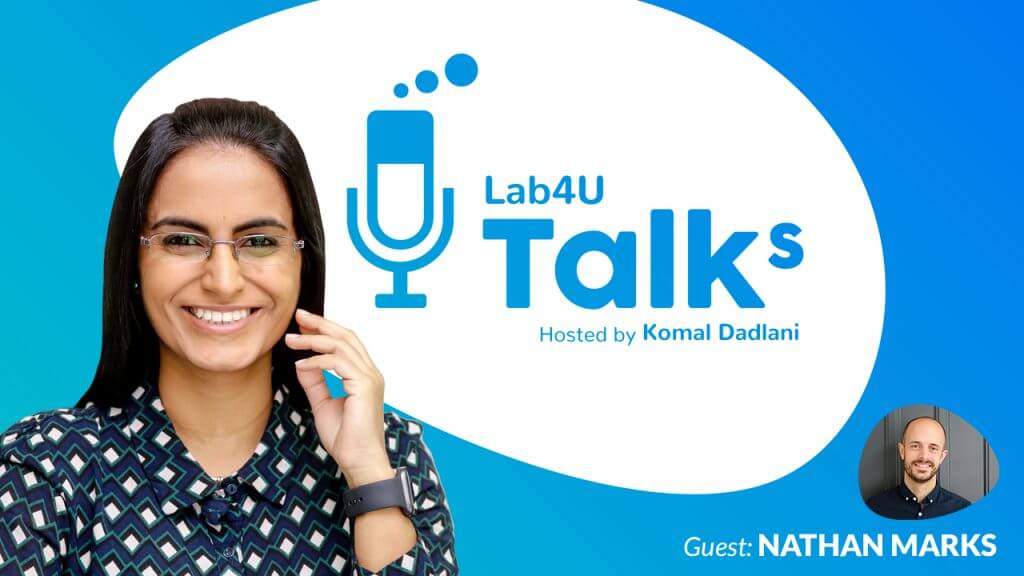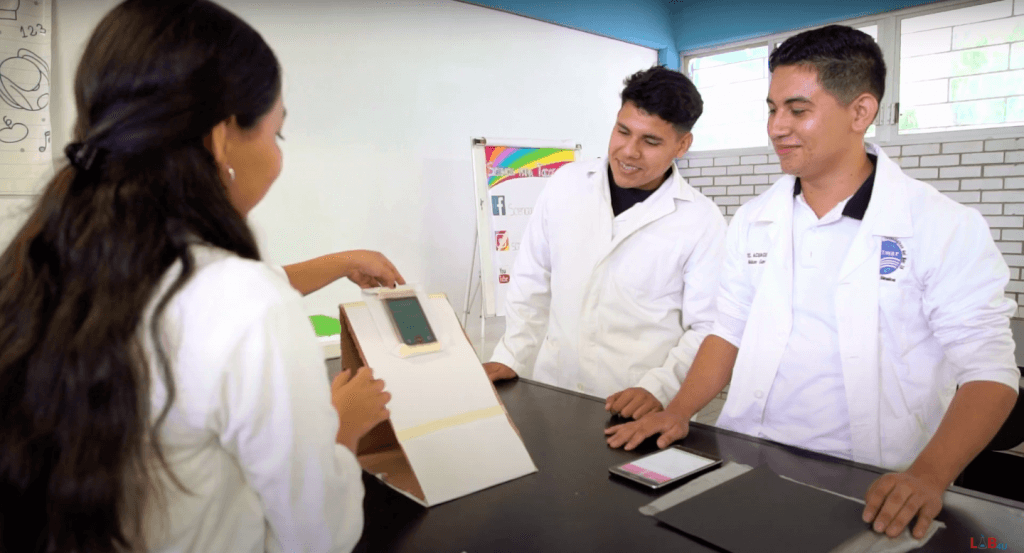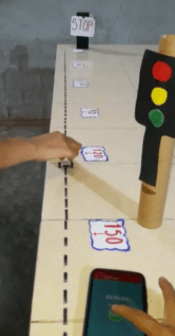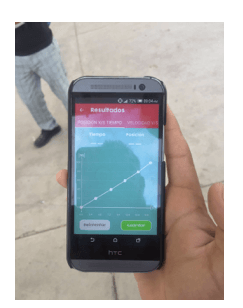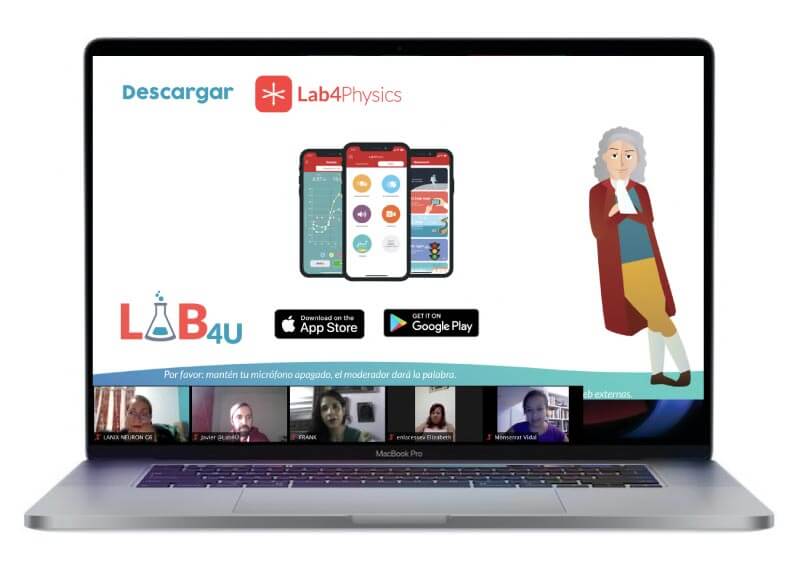How can we bring opportunity to every student, everywhere? It may not be easy, but it’s worth it.
In Episode 1 of the English edition of Lab4U Talks, we will be talking about equity in education and how specifically, education technology can be an equalizer to reduce the achievement gap.
This topic is close to our heart because at Lab4U we believe that talent is universal but opportunities are not, and through our work we want to be a part of bringing high-quality science education to all young people.
Your host for Lab4U Talks is Komal Dadlani, joined by Nathan Marks for this conversation. We’re not only colleagues at Lab4U, but Nathan is also a great teacher and human being who cares deeply about this topic and has dedicated his entire professional career to ensuring all children have access to a quality education.
In this conversation, we’ll discuss the unique contexts in which we work–the US & Mexico. We’ll also explore the opportunities–and some of the pitfalls–of education technology, and how we’re thinking about the best way to ensure that technological innovation can be integrated in the classroom, without losing sight of the importance of high-quality pedagogy and teacher support and training.
Episode Outline:
- min. 2:43: Introductions
- min. 4:15: Nathan explains his passion for education and past experiences as an educator
- min. 6:20: Growing awareness of social and educational inequity
- min. 8:55: Going deeper: how do we confront inequity in education?
Equity / Inequality in Education, vision from USA, Mexico and LatAm.
In this interesting “point-counterpoint” from Nathan’s home state of Minnesota. The Twin Cities of Minneapolis and St. Paul (and the state of Minnesota in which both are located) are often referenced as places that mix affordability, inclusion, and opportunity better than almost any other major metro area in the US.
Yet this is also a place that hides a significant achievement gap between white and minority students. Read more: Miracle of Minneapolis vs. Minneapolis’ White Lie
- min. 10:54: Comparing the achievement gap in the US to the achievement gap in LatAm.
In contribution to that explanation:
The achievement gap in education racial segregation versus segregation by poverty
- min. 12.10: Komal talks about these problems and specifically Lab4U’s mission: democratizing access to quality education.
- min. 12:55: The roots of inequality in education in the US
Some awareness and quotes:
- min. 13:30: Additionally, Nathan talks about the problem from school segregation and racial academic gaps that continue to affect students in the US today, decades after Brown vs. Board of Education.
Publications:
Is Separate Still Unequal? New Evidence on School Segregation and Racial Academic Achievement Gaps (by: Sean Reardon)
“In a 8 year study of data from all public school districts in the U.S. We find that racial school segregation is strongly associated with the magnitude of achievement gaps in 3rd grade, and with the rate at which gaps grow from third to eighth grade. The association of racial segregation with achievement gaps is completely accounted for by racial differences in school poverty: racial segregation appears to be harmful because it concentrates minority students in high-poverty schools, which are, on average, less effective than lower-poverty schools. Finally, we conduct exploratory analyses to examine potential mechanisms through which differential enrollment in high-poverty schools leads to inequality. We find that the effects of school poverty do not appear to be explained by differences in the set of measurable teacher or school characteristics available to us.”
Achievement gap between The rich and the poor, New evidence and possible explanations
Whither Opportunity?: Rising Inequality, Schools, and Children’s Life Chances. The Widening Academic Achievement Gap between the Rich and the Poor: New Evidence and Possible Explanations, Sean F. Reardon (Stanford)
Covid-19 and how this has affected schools, teachers and students in spite of technology .
- min. 15:27: Education during a pandemic, remote learning and the importance of technology in a “global emergency mode”
- min. 16:54: Education technology in times of COVID-19
1.5 B students have been affected with school closures during COVID19 according to UNESCO
Brookings (brookings.edu), estimating the impact of COVID-19 school closures on student outcomes: The impact of Covid-19 on student achievement and what it may mean for educator
- min. 18:30: Important distinctions in times of COVID-19
- Difference between asynchronous in contrast with synchronous online teaching
- Difference between homeschooling and “home-staying remote-schooling”
- Importance of instructional design for online lessons
This crisis has changed the way we do many things, but it may provide new opportunities
- min. 21:55: We still need to invest in infrastructure and teacher training and support:
- Educational options
- Wifi and likewise Universal internet access
- Support teachers, in spite of a fast changing environment
Without a doubt, we must invest in technology, but for Lab4U, technology is not the most relevant. We must also consider infrastructure, pedagogy and educational methodologies and teacher support.
Indeed, we look forward to talking about more related topics in an upcoming episode.
Thank you for listening! Also you can listen Lab4U Talks:
Lab4U’s YouTube channel: https://bit.ly/3gn3KaE
Visit us at: www.lab4u.co or you can also write to us at: [email protected].
Here in this blog you can still read our note podcast teaser or episode 0.
This episode was recorded in our homes, so working remotely. Audio Production: Jose Ferrada, Lab4U. Distribution: Más Más
Finally, Music Credits: Cool Intro – Stings by Kevin MacLeod is licensed under a Creative Commons Attribution license (https://creativecommons.org/licenses/…)
You can listen to this podcast on Apple Podcasts, Spotify and Anchor.
